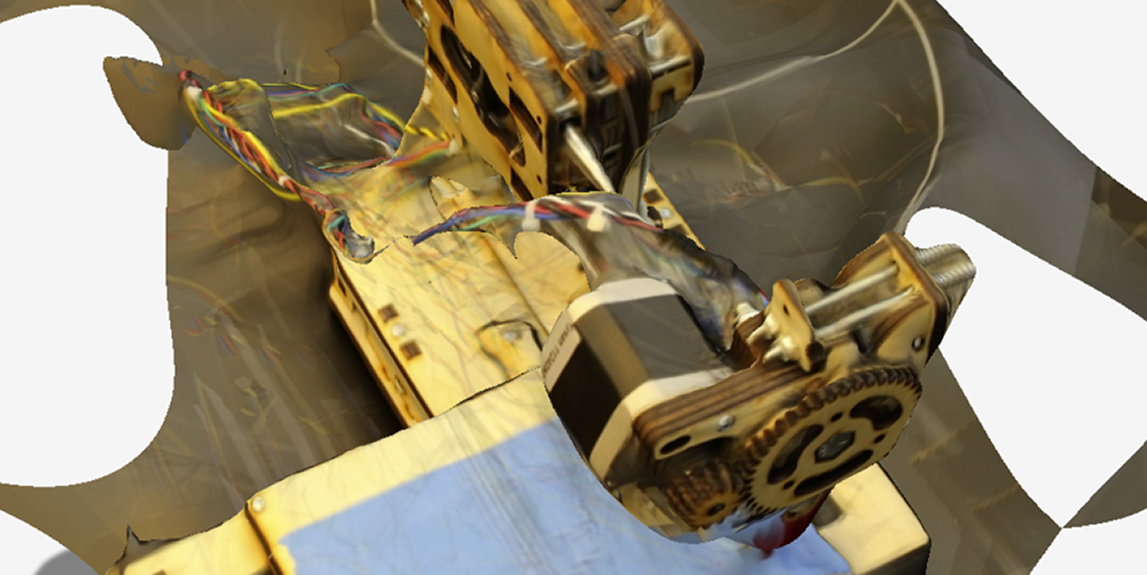The work we’re doing in the lab shapes the courses I teach, and how I teach them, at UVic. Below’s a draft description for English 508: “Design Fictions: Prototyping the Past,” a special topics graduate seminar scheduled for Spring 2016. I’m quite excited about it. Special thanks to Kari Kraus for the inspiration and advice.
In both theory and practice, this seminar brushes against four popular assumptions about digital humanities: 1) as a service to researchers, the field merely develops digital resources for online discovery and builds computational tools for end-users; it does not interpret texts or meaningfully engage with “pre-digital” traditions in literary and cultural criticism; 2) digital humanities is not concerned with the literary or aesthetic character of texts; it is a techno-solutionist product of “big data” and “gamification”; 3) digital humanities practitioners replace cultural perspectives with uncritical computer vision; instead of privileging irony, ambivalence, or speculation, they use computers to instrumentally “prove” reductive claims about literature and culture, usually through graphs and totalizing visualizations; and 4) to participate in the field, you must be fluent in computer programming, or at least be willing to treat literature and culture quantitatively; if you are not a programmer, then you are not doing digital humanities.
During our seminar meetings, we will counter these four assumptions by examining, historicizing, and creating “design fictions,” which Bruce Sterling defines as “the deliberate use of diegetic prototypes to suspend disbelief about change.” Design fictions typically have a futurist bent to them. They speculate about bleeding edge technologies and emerging dynamics, or they project whiz-bang worlds seemingly ripped from films like Minority Report. But we’ll refrain from much futurism. Instead, we will use new media and technologies to look backwards, counterfactually, and prototype the adjacent possibilities of the past (i.e., that which could have easily happened but did not). Inspired by Kari Kraus’s conjectural criticism, Bethany Nowviskie and Johanna Drucker’s speculative computing, Karen Barad and Donna Haraway’s diffractions, Ian Bogost’s procedural rhetoric, Leah Buechley’s wearables, and deformations by Jerome McGann, Lisa Samuels, and Mark Sample, we will conduct “what if” analyses of literary and cultural materials already at hand, in electronic format (e.g., manuscripts in a library’s digital collections). Doing so will involve the peculiar: interpreting our primary sources by altering them—substituting words, rearranging a poem, remediating a novel, juxtaposing disparate images, feeding a corpus into a bot, reconstituting book arts. To be sure, such approaches have vexed legacies. Consider cut-ups, constrained writing, story-making machines, exquisite corpses, remixes, tactical media, or détournement. Today, these avant-garde traditions are ubiquitous in a banal or depoliticized form, the default features of algorithmic culture and social networks. But we will refresh them, with a difference, by integrating “what if” analyses into criticism and prompting audiences to ask fundamental questions about the composition and meaning of art today. That is, we will explore how the deliberate manipulation of primary sources foregrounds what makes them compelling in the first place, and under what assumptions. Our aim, then, will not be to prove—computationally or otherwise—anything about literature and culture. It will be to design and make them differently, to better understand their significance by prototyping what else they could have been, even if that means thinking counterfactually.
No experience with digital humanities is required for this seminar. Assumed technical competence: you know how to send an email.
Assignments: research log (30%); design fiction prototype (40%); seminar paper, approx. 4,000 words (30%). With a focus on learning media through new media, this seminar will blend lecture and discussion with workshops in video, encoding (HTML5), programming (Python), versioning (Git), curation (Dublin Core), online publication (GitHub), and tactile media (paper, circuits). Students will be required to keep research logs, create their own design fictions, and author seminar papers, which will integrate their design fictions into a scholarly argument about literature and culture. These seminar papers will not be reflective essays about method or process. Instead, they will treat design fictions as evocative objects, or evidence for a literary or cultural perspective.
Tentative Texts: Manifesto: A Century of Isms (Mary Ann Caws, ed.); a reader consisting of work by Karen Barad, Zach Blas, Ian Bogost, James Bridle, Susan Brown, Leah Buechley, Wendy Chun, Tanya Clement, Sharon Daniel, Johanna Drucker, Kathleen Fitzpatrick, Jacob Gaboury, Alexander Galloway, Donna Haraway, Steven J. Jackson, Patrick Jagoda, Matthew Kirschenbaum, Lauren Klein, Rem Koolhaas, Merritt Kopas, Kari Kraus, Alan Liu, Elizabeth Losh, Alexis Lothian, Karl Marx, Willard McCarty, Jerome McGann, Tara McPherson, Franco Moretti, Lisa Nakamura, Bethany Nowviskie, Paolo Pedercini, Miriam Posner, Stephen Ramsay, Daniela Rosner, Lisa Samuels, Mark Sample, Jeffrey Schnapp, Bruce Sterling, William J. Turkel, and Jacqueline Wernimont.
All software required for this course is free, and most of it is open source. Students will be asked to use a text editor, such as Sublime, for encoding, programming, and authoring. Please note that this seminar leans toward the artistic edges of digital literary studies; it pushes the creative possibilities of critical work.
Post by Jentery Sayers, attached to the Makerspace project, with the news tag. Featured image for this post care of Jentery Sayers.

